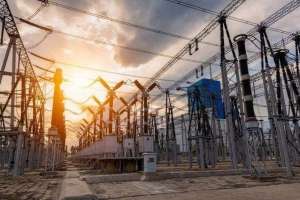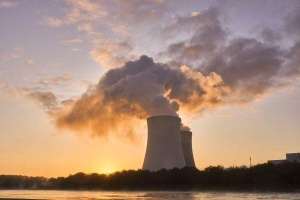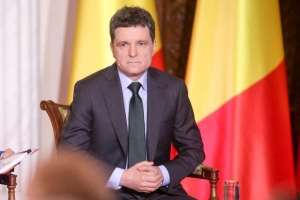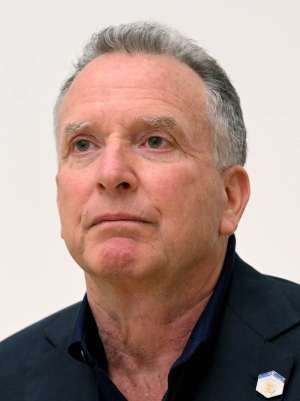Klaus Iohannis is leaving Cotroceni today. Definitively, following his resignation, after having served two full terms as president of the country, plus an almost two-month extension granted by the Constitutional Court. Iohannis is leaving Cotroceni definitively because, according to the Constitution, he is no longer entitled to run for president of the country after two terms.
What remains after the two presidential terms of the former mayor of Sibiu? Of the 10 points of the political platform on the basis of which he won his first term, in November 2014, against the social democrat Victor Ponta, Klaus Iohannis did not carry out, did not complete any of them. Not even the most important one: an educated Romania. Not to mention the healthcare reform, tax reform, joining the euro, large infrastructure projects and the restructuring of the European funds management system by creating a body of elite civil servants to monitor and implement EU-funded programs. All of this should have led us to the "Romania of a job well done", after 10 years in which Klaus Iohannis was the country's president. Unfortunately, after the two presidential mandates held by Iohannis, the slogan used by him in the 2014 electoral campaign remained what it actually is... a poor slogan, meant to bring the necessary votes to a politician who wants to climb to the top of the state.
Klaus Iohannis was elected president of Romania in 2014, with a pro-European, anti-corruption message and oriented towards the modernization of state institutions. The hopes placed in him by the citizens who elected him were dashed by the lack of presence in public life of the country's president and the weak involvement in resolving the threats looming over democracy and the rule of law, with one exception - the period 2017-2019 when he tried to postpone the takeover of control of the judiciary by the PSD, which was led at that time by Liviu Dragnea.
It can be said that the presidential mandates (2014-2019 and 2019-2025) of Klaus Iohannis were marked by major events related to the consolidation of the rule of law, political and economic crises, culminating in his resignation in February 2025. However, we also record two successes, both on a European level: our country's accession to the Schengen Area and the prior lifting by the European Commission of the Cooperation and Verification Mechanism, which had been established in 2007.
• First mandate (2014-2019): Stability and the fight for the rule of law
Klaus Iohannis' victory in the 2014 presidential elections against Victor Ponta was seen as a signal of change for Romania, an impetus for the consolidation of democracy and the fight against corruption. His first term in Cotroceni was dominated by efforts to support an independent judiciary, confrontations with the PSD-led parliamentary majority led by Victor Ponta and Liviu Dragnea, and the strengthening of international strategic partnerships.
One of Iohannis' main commitments was to support the fight against corruption. In the first years of his term, he actively supported the National Anticorruption Directorate (DNA) and its chief prosecutor, Laura Codruţa Kovesi. Under her leadership, the DNA managed to investigate and convict numerous high-ranking politicians, including ministers and parliamentarians. However, in the period 2017-2019, the PSD-ALDE majority promoted legislative amendments aimed at weakening the independence of the judiciary. Iohannis opposed these amendments, challenging them at the Constitutional Court and organizing a referendum on the judiciary. However, on July 9, 2018, under pressure from the Constitutional Court and the Minister of Justice, Tudorel Toader, as well as under the specter of his suspension from office and the organization by the PSD and its allies of a referendum to dismiss the country's president, Klaus Iohannis was forced to sign the decree revoking Laura Codruţa Kovesi, which affected the confidence of a part of his electorate.
In this first presidential term, our country recorded solid economic growth, but investments in transport, health and education infrastructure were insufficient. The tense relationship of the country's president with the PSD governments led to the rejection of laws regarding the increase in pensions and salaries in the budgetary system, which Iohannis considered economically unsustainable.
Internationally, Klaus Iohannis strengthened Romania's relations with NATO and the European Union. At the 2014 NATO summit in Wales, Iohannis supported increasing the defense budget to 2% of GDP and consistently called for a stronger allied military presence on the eastern flank.
A major foreign policy objective of his first presidential term was Romania's accession to the Schengen Area, but this target was not achieved, largely due to other states opposition such as the Netherlands, Austria and France, but also primarily because of the attempts to subjugate the judiciary by the PSD, attempts that were seen by European partners as a direct attack on the rule of law.
However, our country received an image boost in the first half of 2019, when it held the rotating presidency of the EU Council, a mandate that was positively appreciated by European partners.
We also mention that the first year of this presidential mandate was marked by the Colectiv tragedy, on October 30, 2015, as a result of which 65 people lost their lives and over 150 were injured. The Colectiv tragedy showed that the Romanian state needs a profound reform, but unfortunately this did not take place during Iohannis' mandate.
• Second term (2019-2024): Covid-19, the war in Ukraine and the energy crisis
Klaus Iohannis' second term was marked by multiple crises: the COVID-19 pandemic, internal political conflicts, the war in Ukraine, the energy crisis, supply chain disruptions, global inflation, but also by tragedies such as the Crevedia explosion, the Voluntari horror asylums, the ICU fires in hospitals during the pandemic, the Odorheiu Secuiesc high school tragedy and the Ferma Dacilor tragedy. All these tragedies demonstrated that, after the Colectiv tragedy in 2015, the Romanian state did not reform, but failed - as President Klaus Iohannis declared in 2024.
In the first months of the pandemic, Iohannis supported strict measures to limit the spread of the virus. However, the premature relaxation of restrictions and the lack of a coherent vaccination plan have been criticized by both political opponents and civil society representatives. The liberal governments led by Ludovic Orban and Florin Cîţu have been marked by scandals regarding public procurement and the management of the pandemic, which has weakened public trust in the authorities. Therefore, in 2021 and 2022, Romania was the scene of massive protests against quarantine measures, which led to a rapid relaxation of restrictions, contributing to successive waves of illness.
The war launched by Russia against Ukraine in 2022 led Romania to adopt a firm pro-Ukraine position, supporting sanctions against Russia and providing logistical and military support to Kiev. However, in 2023 and 2024, Romania had disputes with Ukraine regarding the transit of cereals through Romanian ports, which generated tensions between the agriculture ministers of the two states, in light of the pressure exerted by farmers in our country who demanded a ban on the entry into the national territory of crops and agri-food products from the neighboring country.
The war in Ukraine led to an energy crisis, characterized by price volatility, which required a consensus in the political class to approve a scheme for capping-compensating electricity and heating bills, to protect household consumers and small and medium-sized enterprises.
After the 2020 parliamentary elections, Klaus Iohannis supported the formation of a right-wing coalition between the PNL, USR and UDMR, a coalition that broke up in September 2021, at which point the country's president sided with the liberals and agreed, in November, with a governing coalition made up of the PNL, PSD and UDMR, the alliance with the social democrats being considered by part of the liberal electorate as a betrayal. Amid high inflation, stagnant reforms and a lack of transparency, Klaus Iohannis' popularity has fallen drastically, especially since, after the parliamentary elections of December 1, 2024 and the cancellation of the presidential elections, he decided that the government should also be granted to the PSD-PNL-UDMR alliance.
Therefore, in light of the continued exercise of presidential powers after the expiration of his second term at Cotroceni on December 21, in January 2025 the political opposition (AUR, POT and USR) initiated a motion of suspension, accusing him of usurping a public office, abuse and approaching the PSD.
In order to avoid a deep political crisis, Klaus Iohannis announced on February 10 that he was resigning, a resignation that takes effect today.
We also mention that in his second presidential term, the Government managed to obtain the lifting of the MCV by the European Commission and the European Parliament and that Romania fully entered the Schengen Area, objectives that Klaus Iohannis had missed in his first term at Cotroceni Palace.

























































